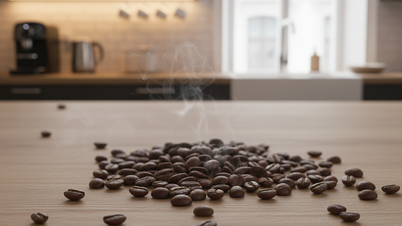Migraines can occur if you sleep too little or too much, fast for a long time, overuse of coffee, hot weather, or are sensitive to perfumes.
Migraine is a sudden and severe one-sided headache, often accompanied by nausea, vomiting, and sensitivity to light and sound. Below are the factors that cause headaches on either the left or right side.
Sleeping too much or too little
According to the Mayo Clinic , some people who sleep too much or too little experience migraines. Going to bed at the same time every night and getting enough sleep (7-9 hours a night) can help reduce symptoms.
Increase or decrease stress
Stress is one of the most common triggers for migraines. Excessive stress causes certain chemicals to be released in the brain. One-sided headaches can also occur when the levels of these chemicals drop, such as when you relax after a stressful day at work.
Dehydration
According to the American Migraine Foundation, dehydration is a migraine trigger. For some people, even mild dehydration can trigger headaches. People with this condition should carry water with them and monitor their fluid intake.
Fasting for too long
When fasting for too long, prolonged hunger often causes migraines, according to the Johns Hopkins Health System (USA). Eat main meals and snacks at the same time every day, and prepare necessary snacks when hungry.
Eat some foods
Aged cheeses, cured meats, and foods containing MSG sometimes trigger migraines. Food additives or preservatives can also be triggers. Keeping a food diary can help identify which foods are responsible.
Too little or too much caffeine
People who consume caffeine (tea, coffee, soft drinks...) regularly and become dependent on it, can get headaches when they skip or drink less. This is because the blood vessels are used to a certain amount of caffeine, and when there is no caffeine or a lower amount, they do not function well. Some people also experience headaches on one side when consuming too much caffeine.

Coffee is a drink that contains a lot of caffeine. Photo: Freepik
Drinking alcohol
Alcohol and other alcoholic beverages are common causes of unilateral headaches. Avoid or limit alcohol if you are prone to this condition.
Smoke
Some people may experience headaches on one side of their head when they smoke or are exposed to secondhand smoke. Quit smoking and avoid secondhand smoke to prevent this risk.
Effects of weather
According to the American Migraine Foundation, extreme heat can lead to dehydration, which can trigger migraines in some people. Drink plenty of water, avoid being outside for long periods of time, and work in the morning on hot days to avoid dehydration. Temperature changes, humidity fluctuations, storms, and changes in barometric pressure can also be triggers.
Scent
Some people may experience migraines when they inhale the smell of food, perfume, or any other scent. People sensitive to these agents should limit their exposure to them.

Sensitivity to perfume can cause headaches. Photo: Freepik
Loud sound
Loud music, noise, or flashing lights can sometimes irritate a person's head. The best way to relieve a migraine is to try to avoid them.
High intensity exercise
According to the American Migraine Foundation, regular exercise is beneficial for migraine sufferers because it releases natural chemicals in the brain, such as endorphins, that help relieve pain. When you suddenly engage in more activity or at a higher intensity than usual, your body can release the stress hormone cortisol. High cortisol levels can cause hunger or dehydration, which can lead to one-sided headaches.
neck pain
Neck pain is a symptom but can be the cause of headaches or other symptoms. To avoid or improve certain types of neck pain, adjust your pillow or ensure good posture when sleeping or sitting at a computer.
Hormonal changes
Women are more likely to get migraines than men and tend to experience symptoms during their menstrual periods, according to the American Migraine Foundation. Certain birth control methods can stabilize hormone levels and prevent or reduce symptoms. Women can talk to their doctors about this.
Mai Cat (According to Everyday Health )
| Readers ask questions about neurological diseases here for doctors to answer |
Source link



![[Photo] Super harvest moon shines brightly on Mid-Autumn Festival night around the world](https://vphoto.vietnam.vn/thumb/1200x675/vietnam/resource/IMAGE/2025/10/07/1759816565798_1759814567021-jpg.webp)




































































































Comment (0)